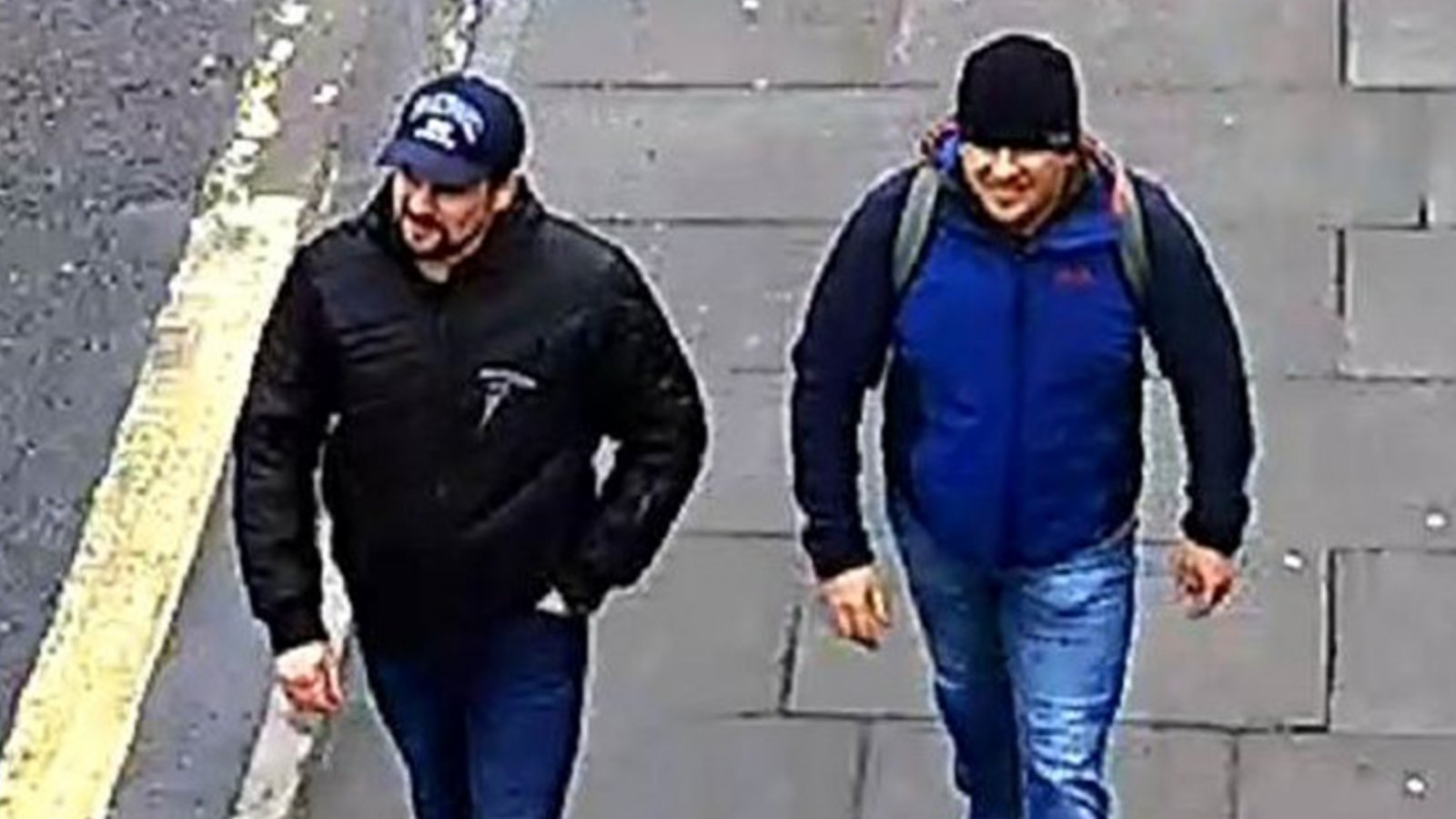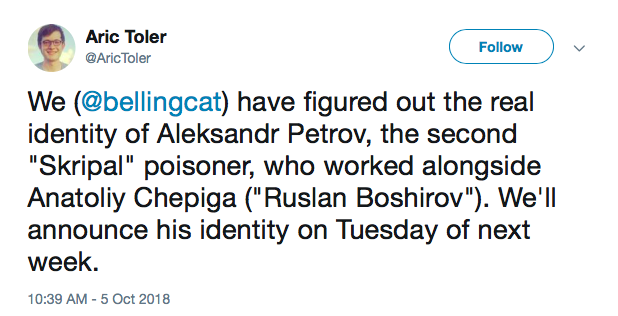
Russian military intelligence (GRU) officers have done a terrible job of covering their tracks lately, and in some cases, they even created identifying clues anyone with an Internet connection could find.
Colonel Anatoliy Chepiga used the alias Ruslan Boshirov when he and Alexander Petrov (another alias) visited Salisbury, England on a mission to poison former spy Sergei Skripal. Bellingcat and The Insider used leaked databases and passport files to expose the Putin-honored GRU officer as a government agent and not a fitness industry professional on holiday as he – and Putin – had claimed.
Along the way, the researchers from Bellingcat and the Insider also recognised that the men were issued sequentially numbered passports by a special division, making it easier for anyone with access to a leaked database to identify them.
On Friday, Bellingcat tweeted it knows Petrov's real identity now too and will reveal it early next week:
Spies sent to the Netherlands to work on hacking the international chemical weapons watchdog agency were even sloppier in leaving traces of their suspicious activities.
One of the suspected agents, tipped as a “human intelligence source” by Dutch investigators, had registered five vehicles at a north-western Moscow address better known as the Aquarium, the GRU finishing school for military attaches and elite spies. According to online listings, which are not official but are publicly available to anyone on Google, he drove a Honda Civic, then moved on to an Alfa Romeo. In case the address did not tip investigators off, he also listed the base number of the Military-Diplomatic Academy.
That was the same school where Anatoliy Chepiga, the alleged true identity of the Russian suspect in the Salisbury poisoning, finished his education. Viktor Suvorov, a GRU agent who later defected to the west, described the academy as so secret that Soviet citizens could be jailed just for revealing its existence.
The internet has now made it far harder to hide that evidence. But the GRU apparently thought that would not matter.
Meanwhile, most of the alleged agents could be found online.
One of the men, Aleksei Morenets, an alleged hacker, appeared to have set up a dating profile.
Another played for an amateur Moscow football team “known as the security services team” a current player told the Moscow Times. “Almost everyone works for an intelligence agency.” The team rosters are publicly available.
(...)
The alleged spies were caught carrying enough telephones to fill an electronics store. Moreover, like all meticulous Russians on a business trip, they held on to their taxi receipts from GRU headquarters.
Russia will publicly deny the latest reports and revelations about the alleged GRU agents. It has no other alternative. But the exposure of several consecutive European operations should raise questions about whether Russian military intelligence is being intentionally provocative or has simply gone off the rails.
String of own goals by Russian spies exposes a strange sloppiness (The Guardian)
